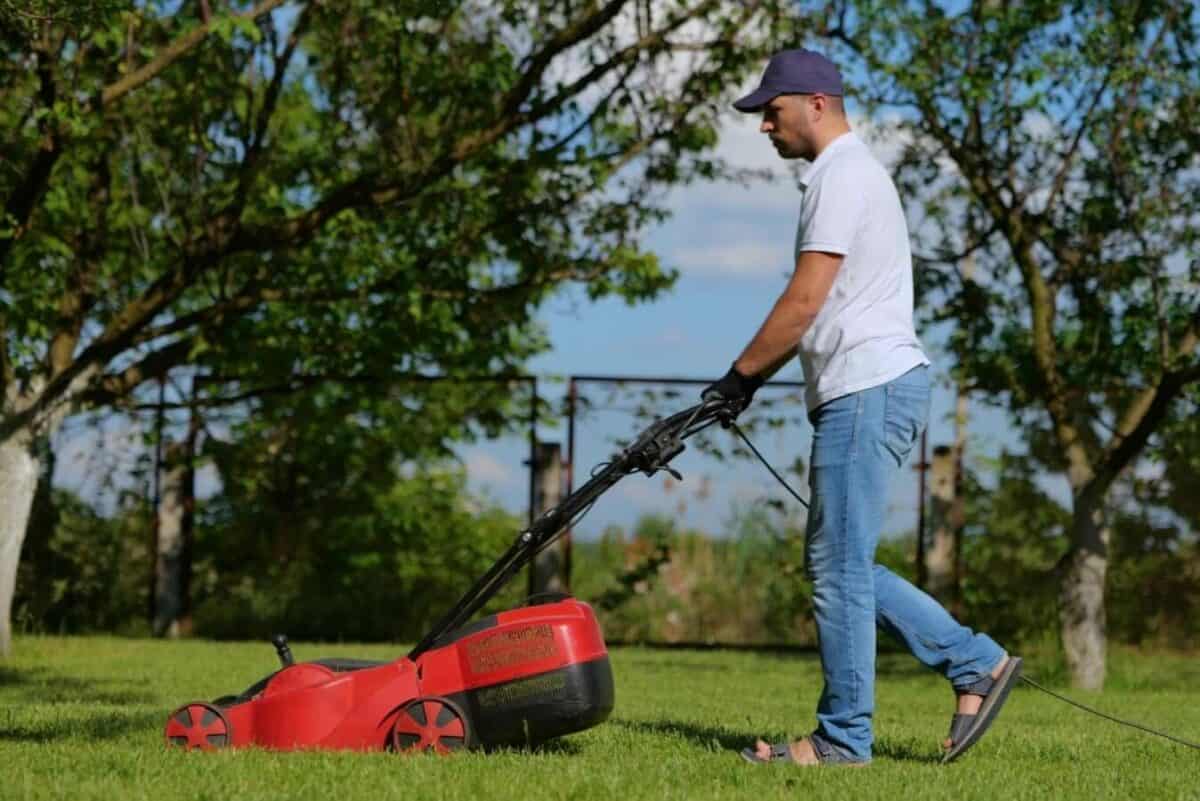There’s something magical about the rhythm of yard work, isn’t there? The rustle of leaves, the hum of the lawnmower, and the sweet call of birds singing their song. But did you know that these soothing sounds can come with a cost? The same equipment that helps us manicure our lawns can be a hidden threat to our hearing. The bad news? Most of us aren’t even aware of it. But hey, that’s why we’re here – as your go-to hearing professionals, we have your ears’ best interests at heart. And yes, that includes ensuring you enjoy your yard work without risking your hearing.
How Does Yard Work Impact Your Hearing?
Before we delve into the nitty-gritty, let’s address the elephant in the room – how can something as simple as yard work threaten your hearing? You see, any sound above 85 decibels (dB) around the noise level of heavy traffic can cause damage over time.
Some of the loudest ones typically include:
Leaf Blowers: Gas-powered leaf blowers can produce high levels of noise, often exceeding 100 decibels (dB). Some electric leaf blowers can also be quite loud, although they tend to be quieter than their gas-powered counterparts.
Chainsaws: Chainsaws are powerful tools used for cutting trees and logs. They can generate significant noise, with gas-powered models often producing sound levels above 100 dB.
Lawn Mowers: While newer models of lawn mowers are designed to be quieter, some older or more powerful gas-powered mowers can still be quite loud, especially if they lack proper mufflers. Noise levels can range from around 80 to over 100 dB.
Hedge Trimmers: Hedge trimmers used for shaping and trimming hedges can produce noise levels in the range of 85 to 100 dB. The exact noise level may vary depending on the specific model and whether it is powered by gas or electricity.
Wood Chippers: Wood chippers are used to shred tree branches and other woody debris. They typically run on gas engines and can be very loud, often exceeding 100 dB.
Protect Your Ears: The Essentials
Soundproofing Your Power Tools
A little soundproofing can go a long way. For instance, consider padding your lawnmower’s handle with some foam or rubber. This simple hack can reduce the vibrations, hence lowering the noise levels.
Noise-Canceling Headphones
A pair of noise-canceling headphones can be your best friend when you’re doing yard work. These beauties can significantly reduce the noise that reaches your ears. Plus, many of them come with built-in Bluetooth, so you can jam to your favorite tunes while pruning those rose bushes.
Regular Breaks
We get it. Once you’re in the groove, it’s hard to stop. But taking regular breaks can give your ears a much-needed rest from the constant noise. Plus, it’s a great excuse to enjoy a glass of lemonade!
The Importance of Regular Hearing Checks
Even with all these preventive measures, regular hearing checks are essential. Remember, hearing loss often creeps in gradually, so you might notice it once it’s advanced. But don’t worry, that’s where we come in. As hearing professionals, we’re here to guide you every step of the way. We recommend scheduling a hearing check at least once a year. And if you suspect any changes to your hearing, don’t hesitate to get in touch.
The Role of Hearing Aids
If you’ve noticed any signs of hearing loss, hearing aids can be a game changer. Not only do they help you hear better, but they also enable you to stay connected with the world around you. Today’s hearing aids are sleek, stylish, and nearly invisible. Nobody will even notice you’re wearing them!
Look After Your Hearing, Look After Yourself
Protecting your hearing is about more than just safeguarding your ears. It’s about maintaining your quality of life, ensuring you can enjoy those birdsongs and the laughter of your loved ones. Remember, there is always time to start taking care of your hearing.
So, the next time you put on your gardening gloves, remember to add ear protection to your toolkit. You’ll be thanking yourself in the future – trust us on this!
Take The First Step Today
Acknowledging that you might have hearing loss can be challenging. But remember, you’re not alone. We’re here to help. We invite you to visit our practice and discuss your concerns. Our team of hearing professionals will work with you to devise a personalized care plan – because your hearing matters.


